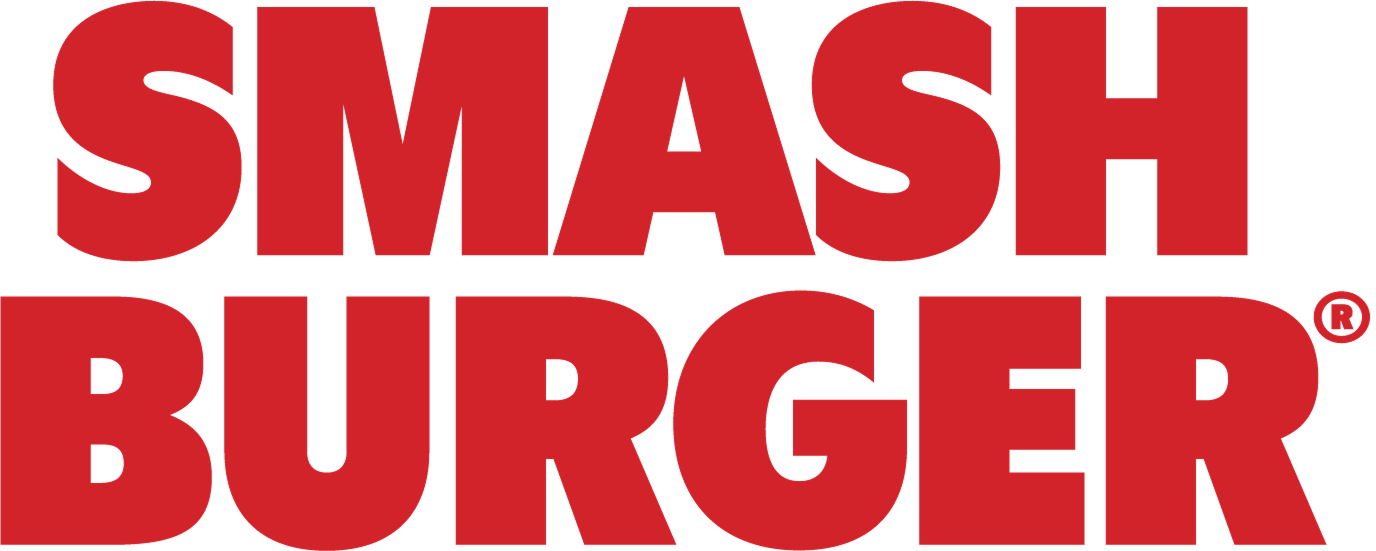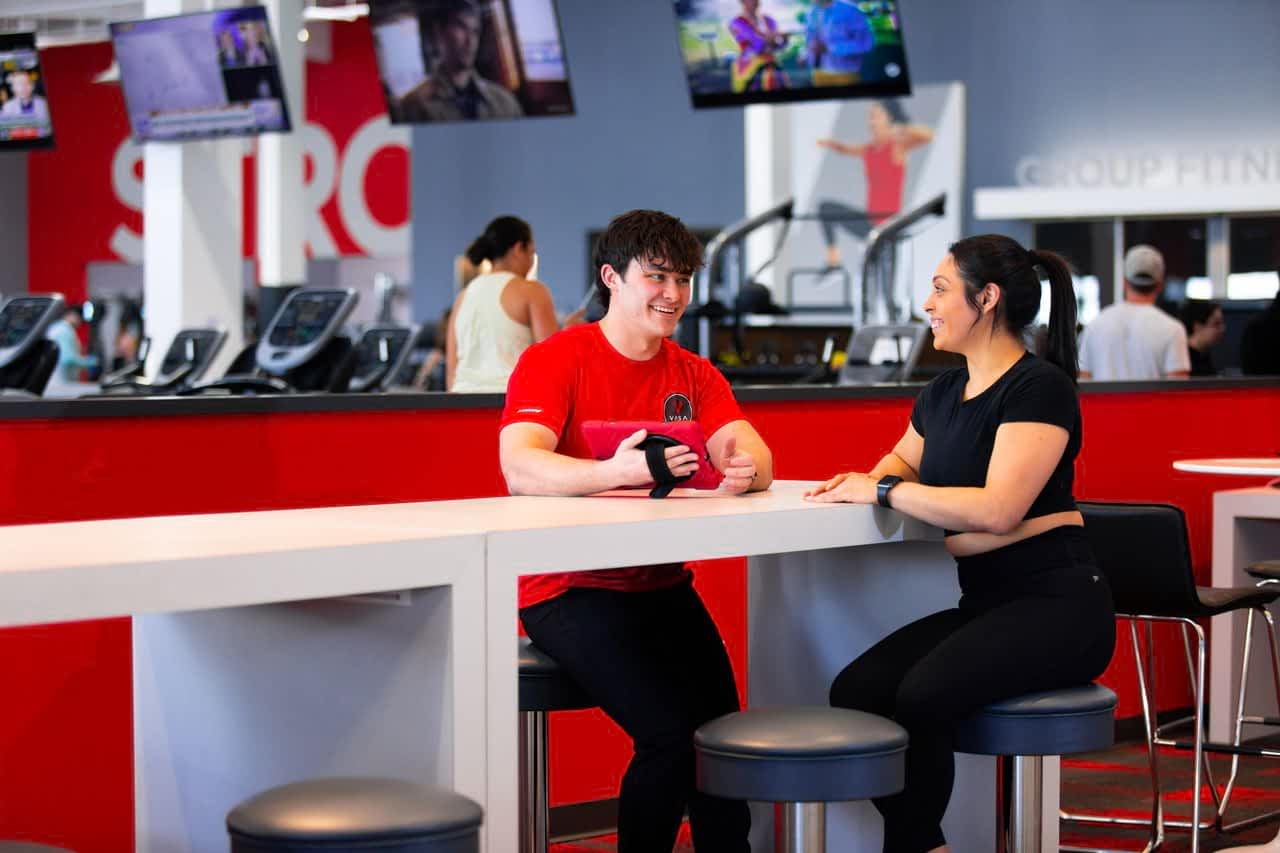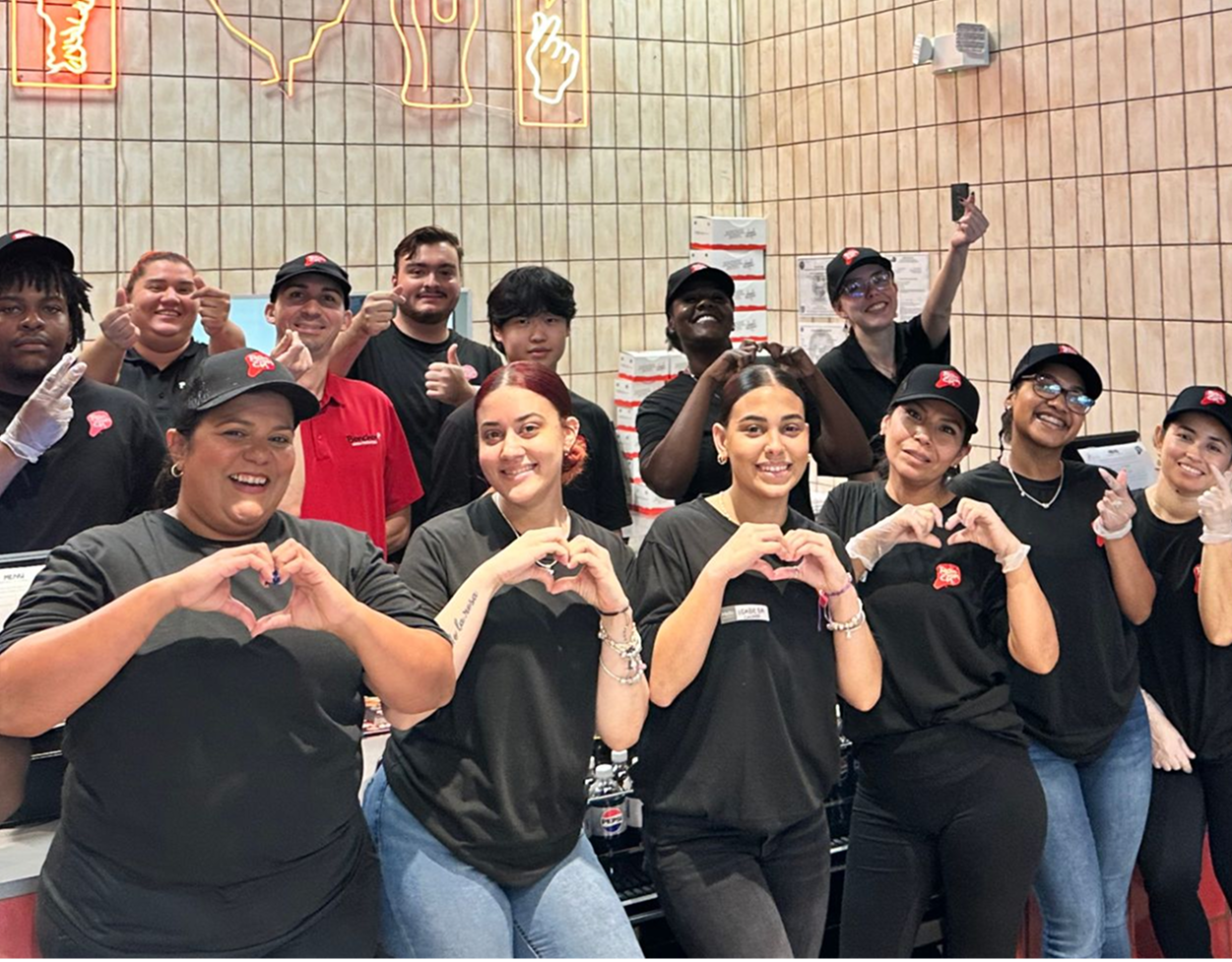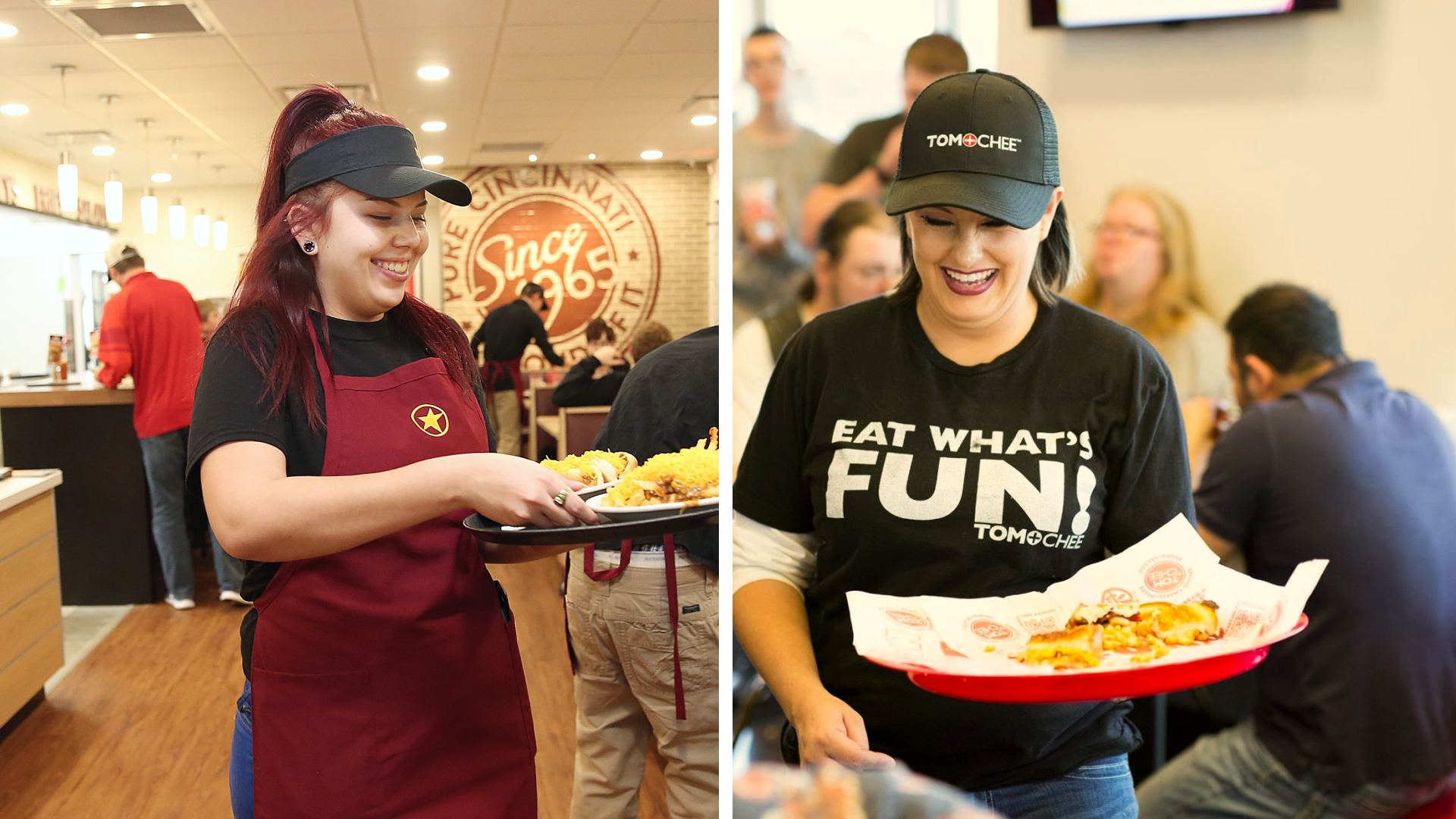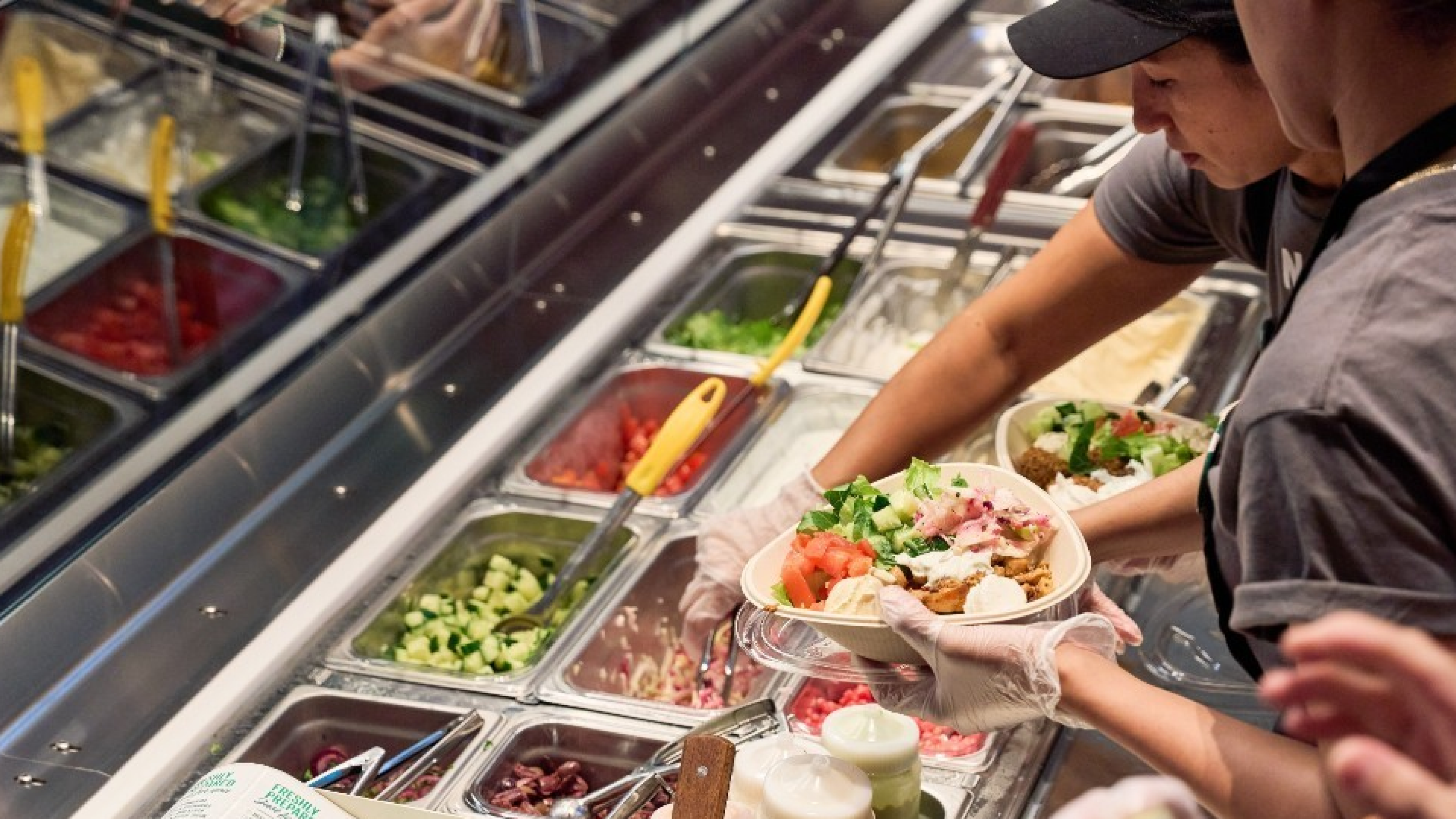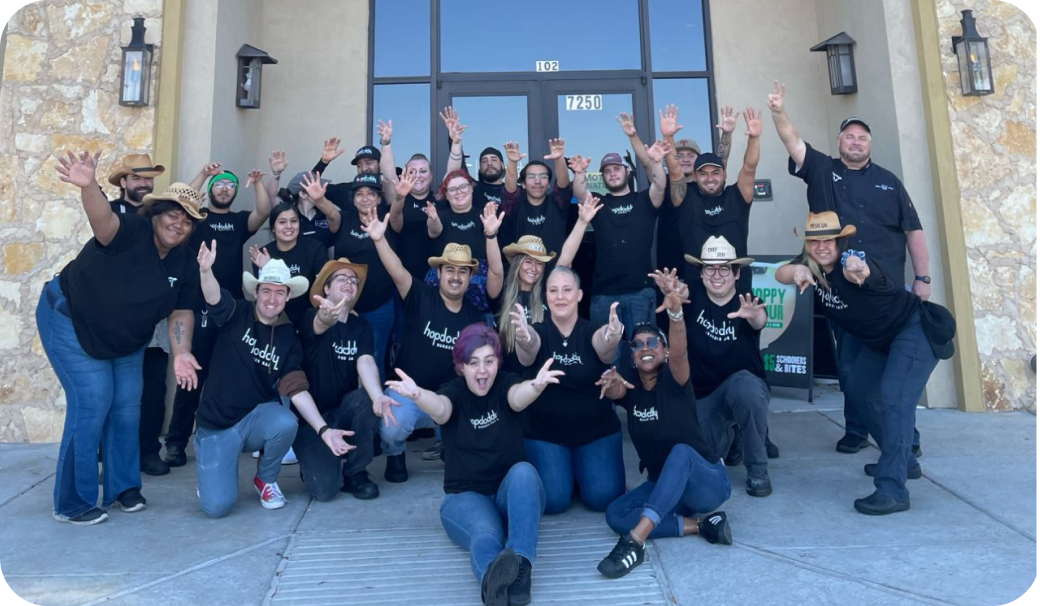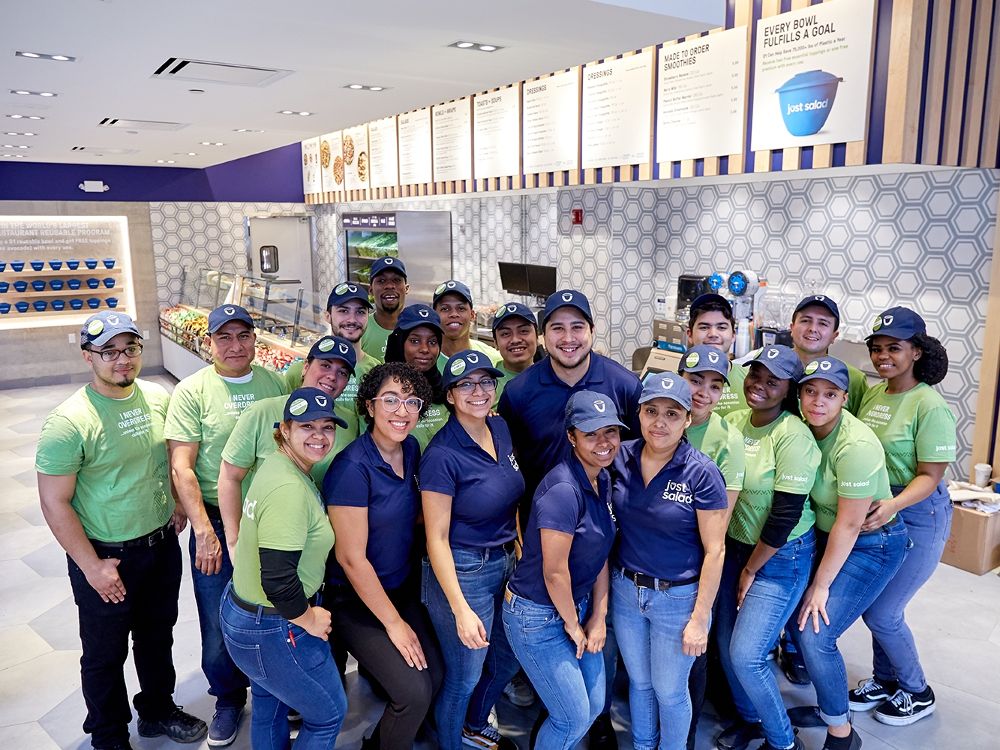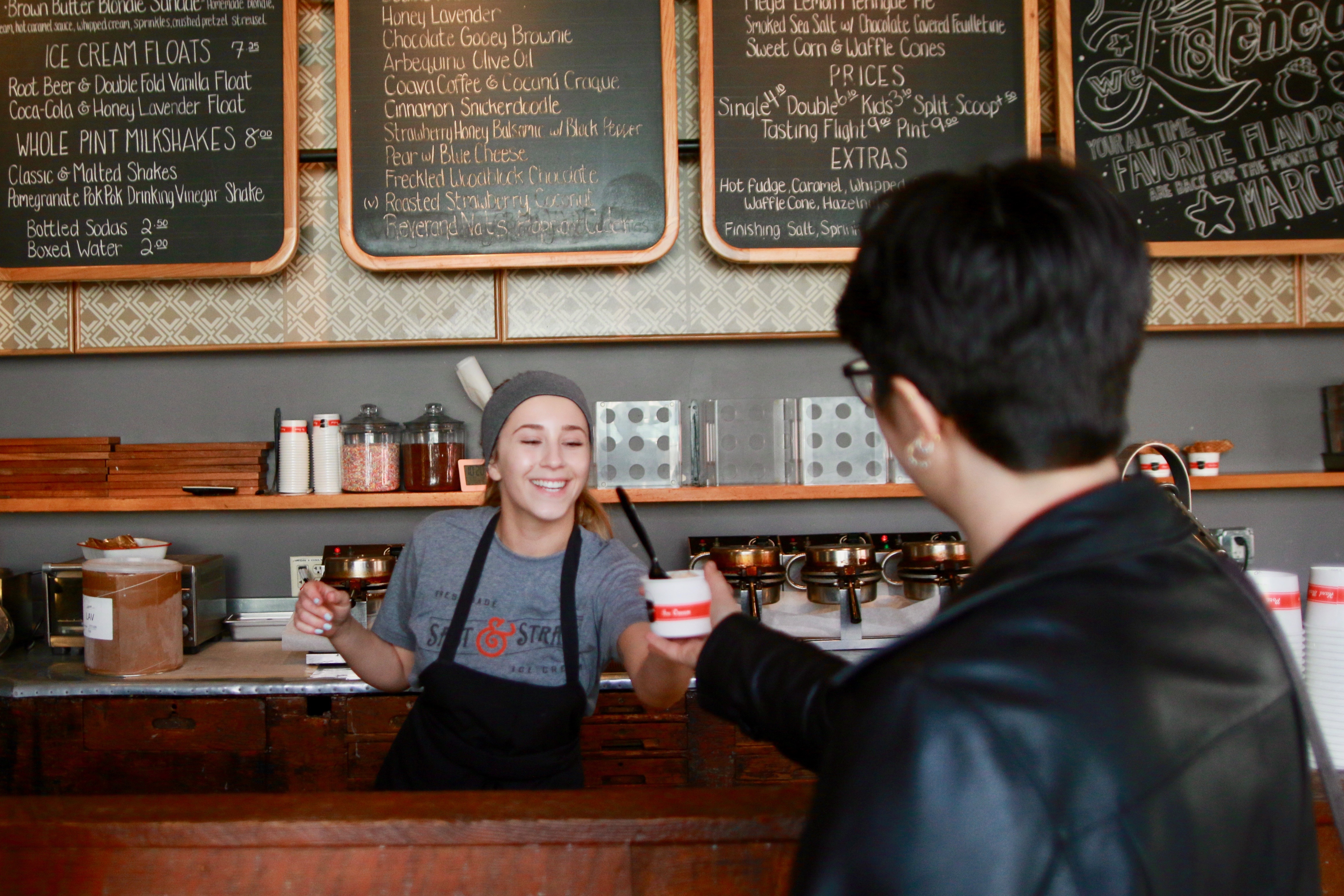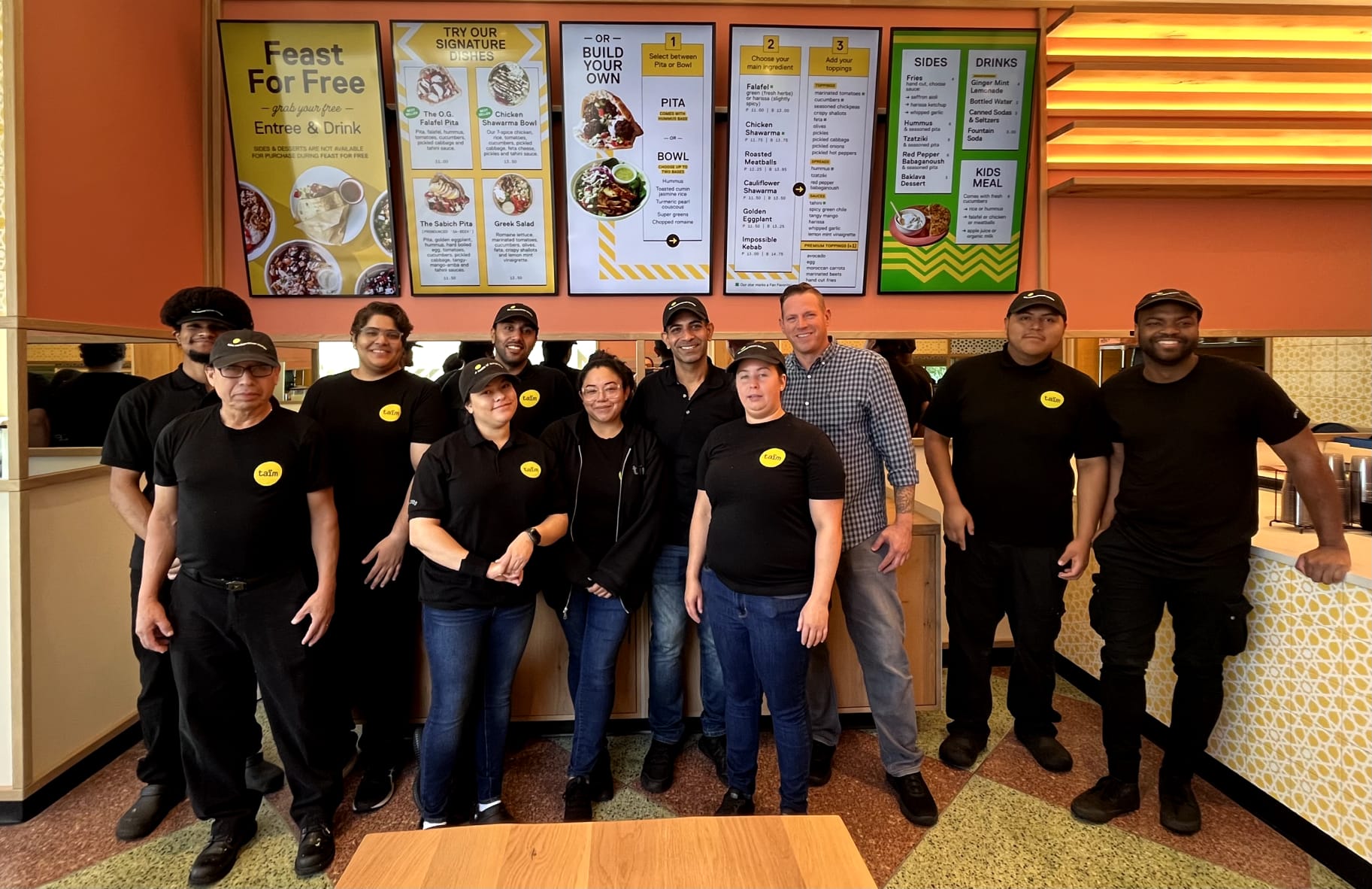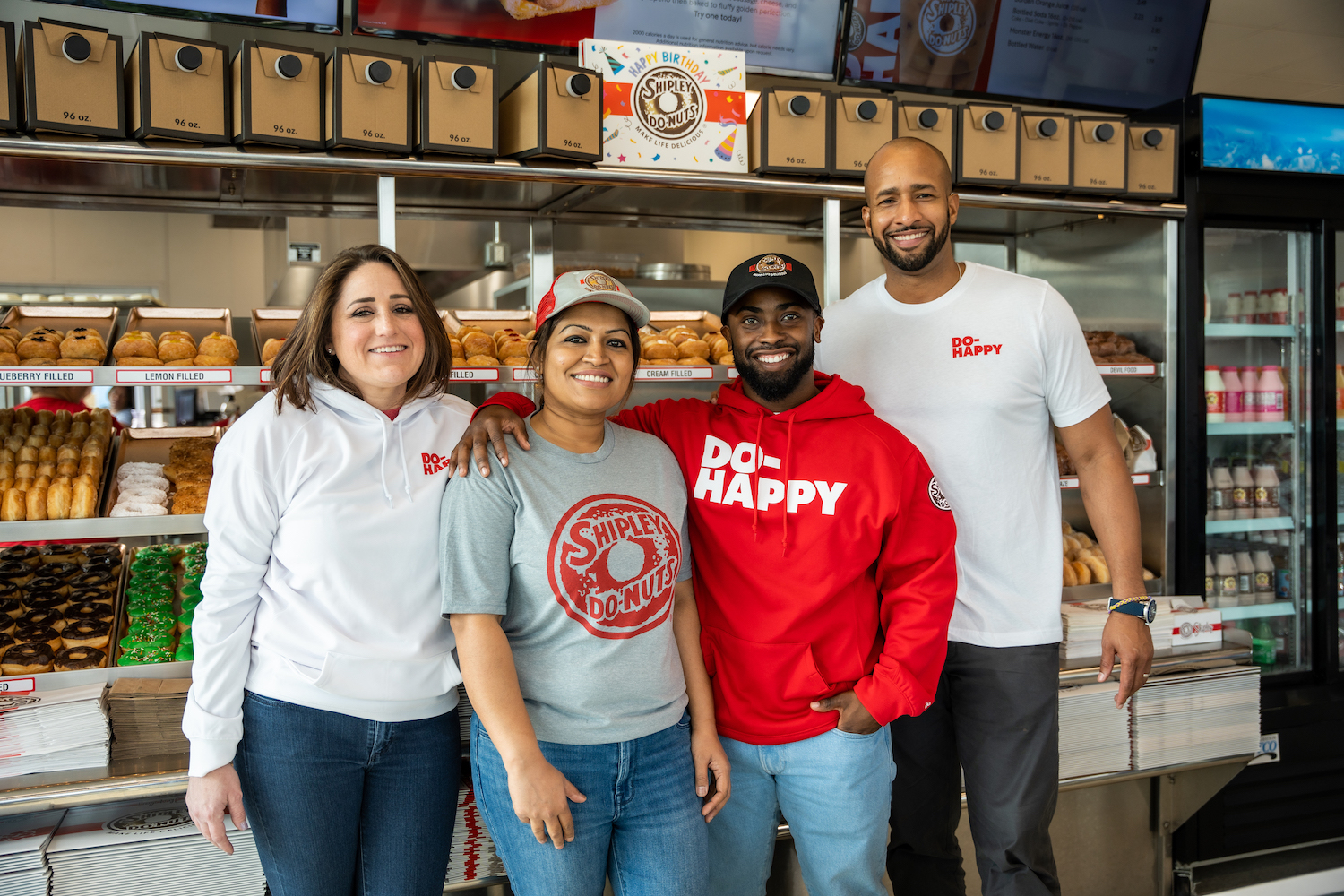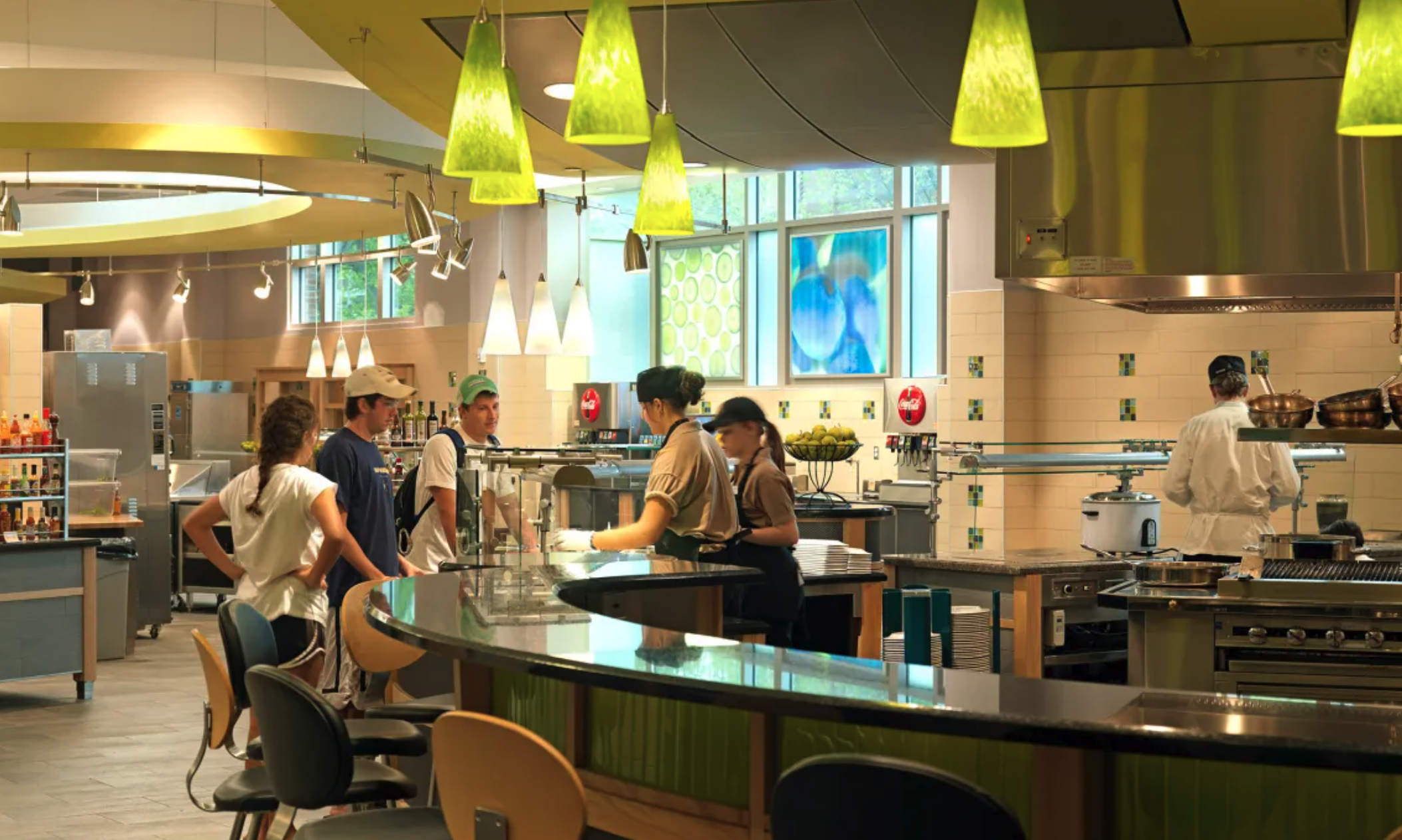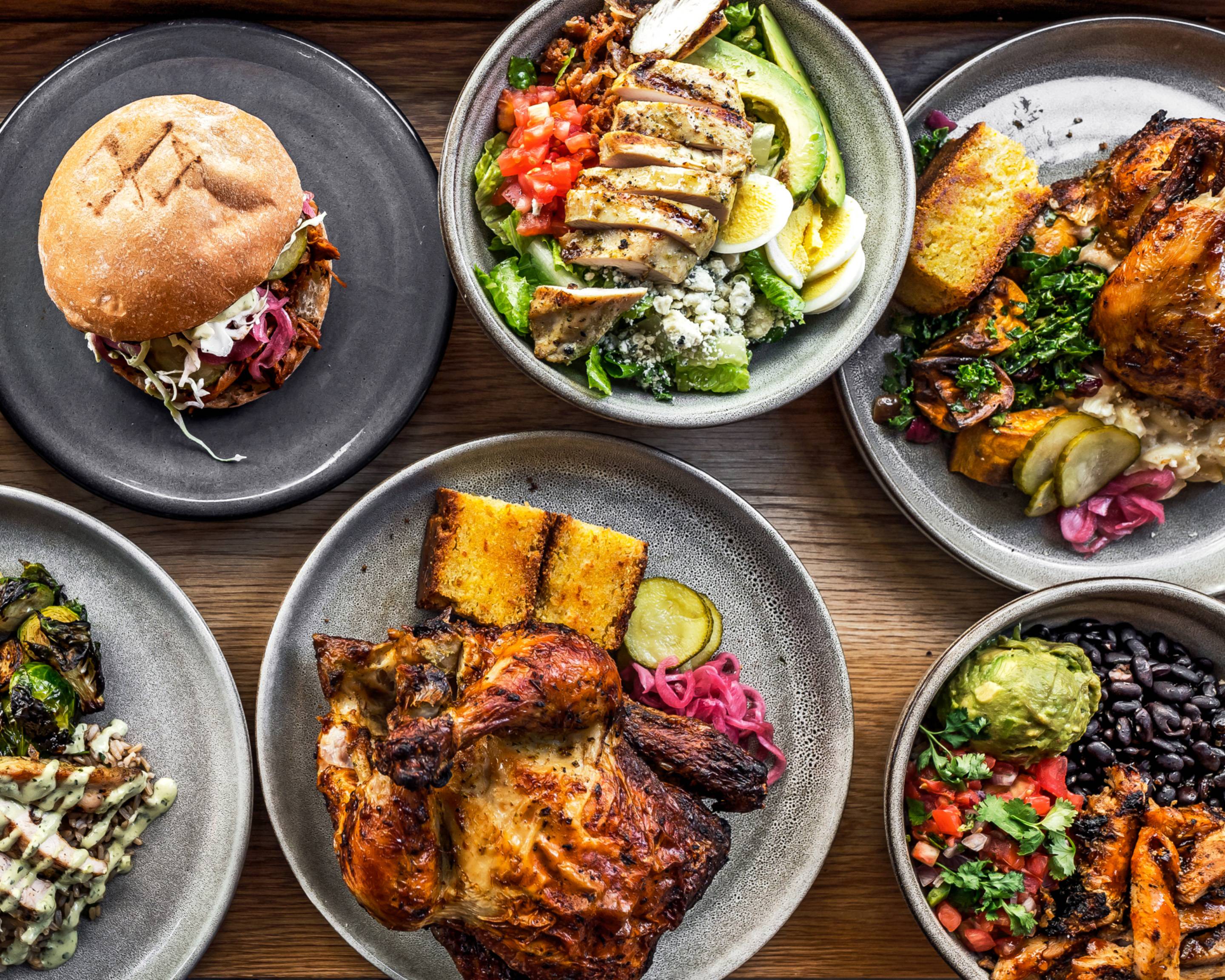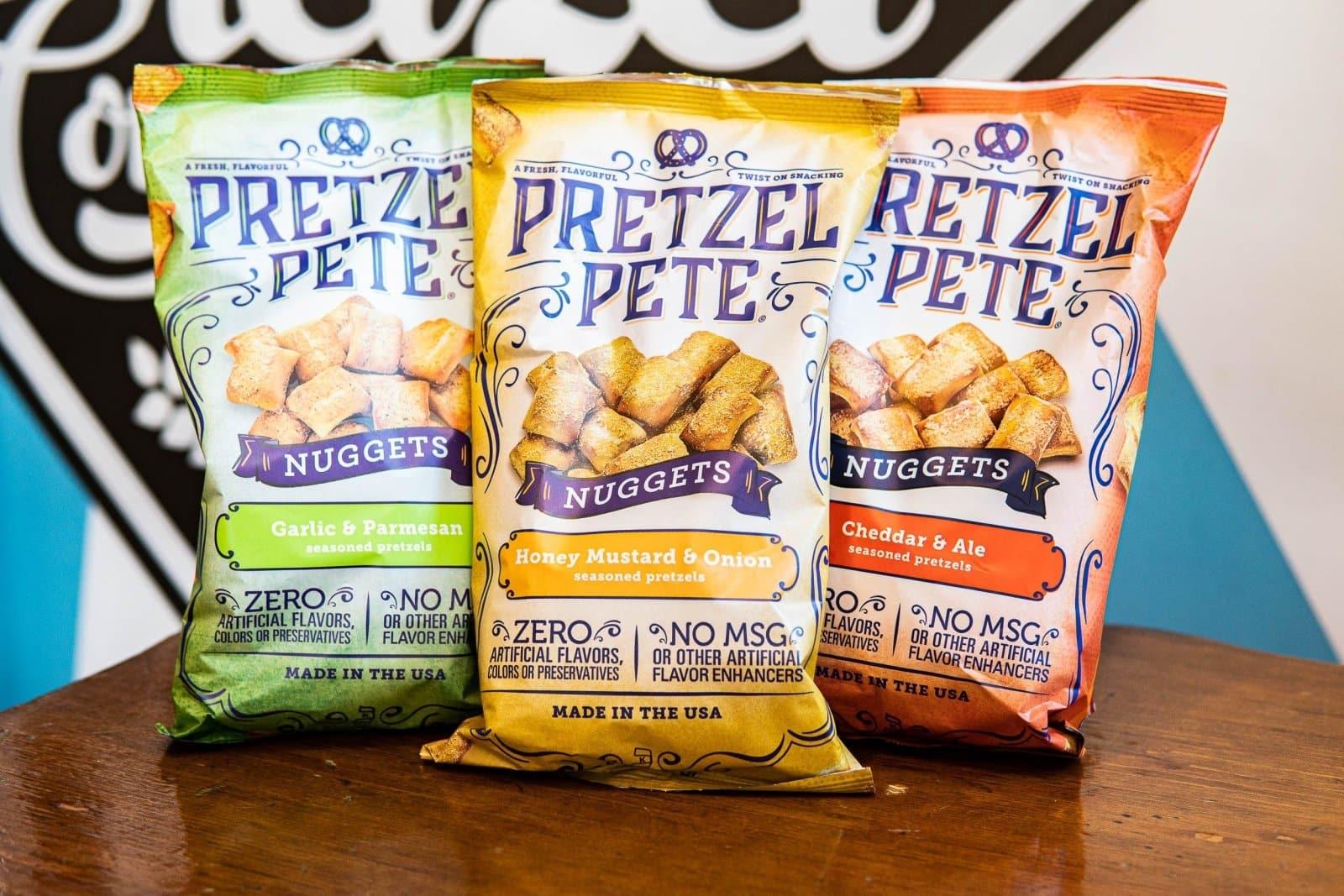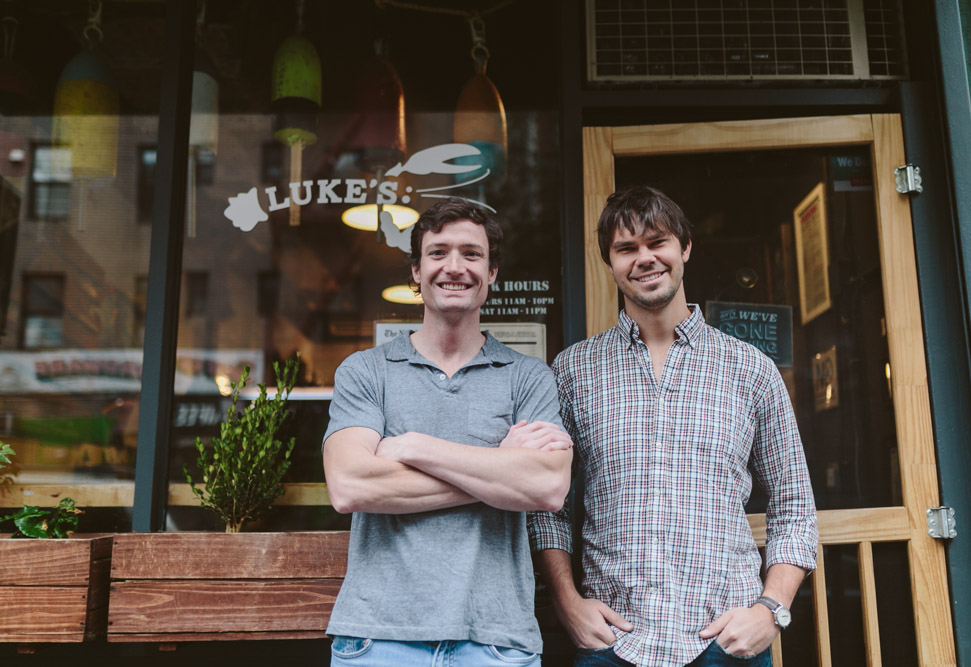When Kelly Saunders replaced Smashburger's third LMS in 14 years, she and her team had 60 days to migrate 200+ locations. Here's how she made rapid adoption possible.
"Our three to five year growth plan required an LMS that would enable franchise operators to take more ownership. That's why we chose Opus Training."
Kelly Saunders, SVP of Restaurant Experience at Smashburger
At a Glance:
- Industry: Fast-casual burger restaurant
- Scale: 200+ corporate and franchise locations nationwide
- The Challenge: Complex training platform frustrated franchisees and managers, limiting engagement and blocking aggressive expansion into non-traditional locations
- The Opus Solution: 60-day strategic rollout positioned training as the operational "watering hole" where franchisees access everything they need in one mobile-first platform
- The Results: Executed compressed 9-item LTO with 80% skills validation completion and minimal guest complaints—validating platform as foundation for franchise growth
🎧 Want the full story? Listen to Kelly's complete conversation on Back to Basics, where she breaks down the strategic decisions, franchise dynamics, and lessons learned.
Challenge: Platform Complexity Hindered Franchise Engagement and Growth
When Kelly Saunders replaced Smashburger's third LMS in 14 years, she had 60 days to migrate 200+ locations. The existing platform required five clicks for basic information, offered zero translation, and couldn't scale to their franchise expansion plans targeting airports, naval bases, and universities.
"It wasn't meeting the needs of making sure that we're able to get our managers and franchise owners really highly engaged," Kelly explained. "It became complicated. It took five clicks to get to anything we needed them to get to."
The complexity created cascading problems:
- Franchise frustration with difficult platform navigation reduced engagement
- Manager burden fielding constant questions about basic procedures
- Growth limitations as the system couldn't scale to diverse locations (airports, universities, naval bases)
- Multilingual gaps left significant portions of the workforce unable to access training in their preferred language
- Training labor bloat kept team members off the floor during peak hours
With franchise expansion accelerating, Smashburger needed a platform that could deliver franchise operator ownership, multilingual access, and reduced operational friction—all while supporting rapid growth.
"Implementing an LMS cannot be a silver bullet. It's more about the infrastructure that you build to support that LMS that's going to drive the true operational success metrics in your business."
Kelly Saunders, SVP of Restaurant Experience at Smashburger
Opus as the Solution: Building the "Watering Hole" for Training and Operations
Smashburger chose Opus after a strategic decision-making process that took years but enabled 60-day execution.
Strategic Pilot: Validation Before Full Rollout
Before committing 200+ locations, Smashburger ran a 60-day pilot with nine carefully selected restaurants:
- Mix of corporate and franchise
- Mix of performance levels (not just top performers)
- Diverse operational contexts
Why these specific locations? Highly engaged operators with strong metrics created powerful peer validation for skeptical franchisees. The pilot built confidence in adoption rates, completion metrics, and operational impact before full rollout.
The 60-Day Implementation: Prioritizing Franchisee Value
With pilot validation complete, Kelly positioned Opus as "the watering hole"—the one place where everything exists.
"A watering hole is a place where everybody knows that if I get into Opus, I can learn, I can connect, I can celebrate, I can get direction on how to run my shifts," Kelly explained.
What launched immediately:
- Core new hire training and role-based tracks
- Station-specific training and compliance modules
- Complete resource library (700+ resources)
- Opening and closing procedures
What they held back:
- Communications/messaging features
- Advanced task management workflows
- Specialized training content
"We really wanted the Opus core value to shine as the watering hole before we started adding to it," Kelly explained about the staged approach.
Maintaining the Feedback Loop
Kelly's team stayed connected to franchisee needs throughout:
✅ During rollout: Weekly check-ins with pilot locations, direct FBC support, hands-on training for every operator, open communication channels
🔁 Post-rollout: Monthly reporting to FBCs, franchisee advisory council feedback sessions, usage analytics to identify struggling locations, content refinement based on actual usage
"We over-communicated, which in the past we didn't do as good of a job," Kelly admitted.
This feedback loop created ongoing buy-in. When franchisees saw their input shaping the platform, they became invested in its success.
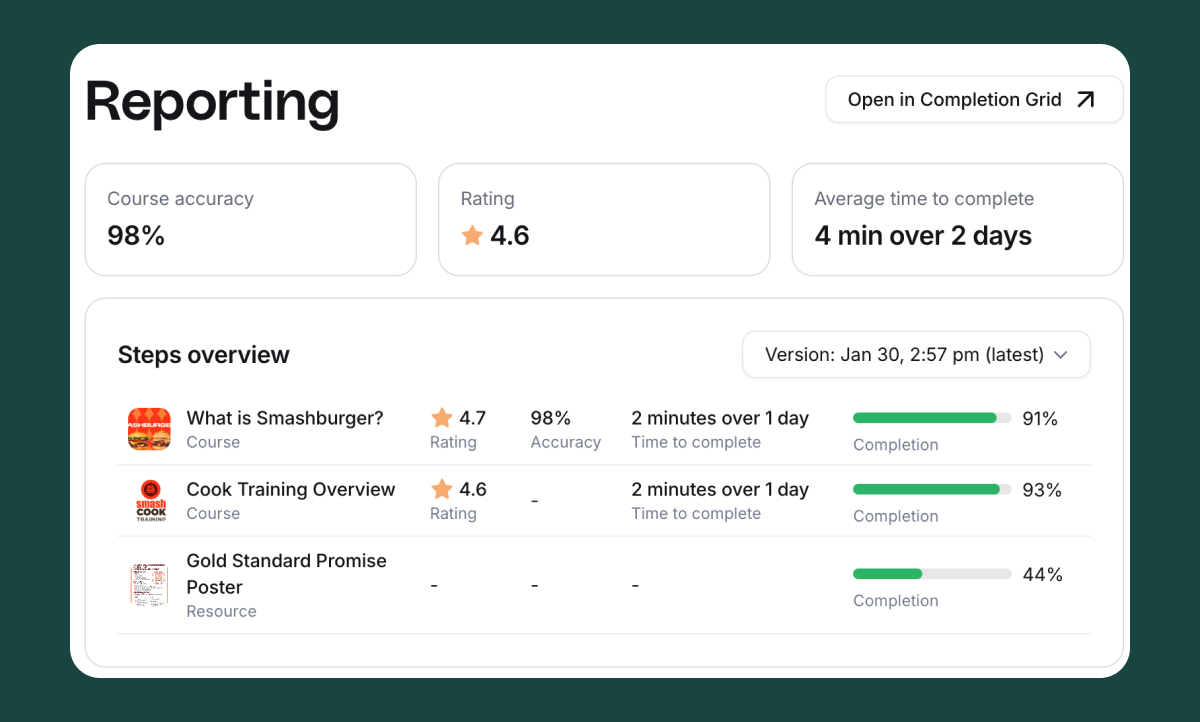
Close-up: The Decision-Making Framework That Made 60 Days Possible
The work that took time but enabled rapid execution
Kelly's approach followed three critical steps:
1. Start with the End in Mind
Define success clearly before evaluating solutions. For Smashburger, that meant:
- Franchise operators with more training ownership
- Multilingual access for their diverse workforce
- Reduced "training labor bloat" keeping team members off the floor during peak hours
- Platform that scales to airports, universities, and naval bases
2. Complete a Thorough Needs Assessment
Map all dimensions of impact:
- Business needs: Franchise growth support, scalability to non-traditional locations
- People needs: Manager simplicity, franchisee flexibility, multilingual access
- Cost impact: Total cost of change vs. status quo (including hidden costs like manager time)
- Risk factors: What could kill adoption? What makes franchisees resist change?
3. Socialize Before Acting
Kelly's strategic sequence prevented surprises and built consensus:
Global technology and L&D teams first → Validate technical feasibility, understand integration requirements, identify potential blockers
Internal teams next → Shape implementation approach, gather frontline insights, build internal champions
Leadership last → Present unified recommendation (not an open question), show cross-functional alignment, demonstrate pilot validation
"I can't take all that credit because they definitely were in the trenches. The reflective decision-making and thorough socialization took time upfront—but enabled rapid execution."
Kelly Saunders, SVP of Restaurant Experience at Smashburger
The payoff: This upfront socialization—which took months—eliminated resistance during the 60-day rollout. By the time leadership approved, every stakeholder already understood the "why" and "how."
💡 Implementing across franchise operations? Get our complete Franchise Training Implementation Guide for the playbook based on successful rollouts.
Results: Rapid LTO Success Validates Platform Potential
Months after the Opus rollout, Smashburger launched Summer of Smash—nine new menu items in a compressed 4-month timeline. The scenario that typically breaks training systems became proof of concept.
The Cascading Pre-Learning Model
Smashburger flipped traditional training:
- Teams completed digital pre-learning in Opus first, then live sessions became interactive Q&A rather than presentations
- Multi-unit leaders trained first, then GMs, then frontline teams—each group using Opus for self-paced preparation before hands-on practice
- Skills were validated with in-person Opus Check-in
"We actually had all the courses prepared before we did the live training sessions," Kelly shared. "So they did their pre-learning in Opus. Then those virtual sessions turned into true Q&A, which really transferred that learning so much faster."
The LTO Results with Opus
⭐️ 80% completion on 10-part in-person skills validation across all locations—franchise and corporate.
❤️ Minimal guest complaints on execution despite nine new menu items—Summer of Smash maintained operational standards when new rollouts typically spike negative feedback.
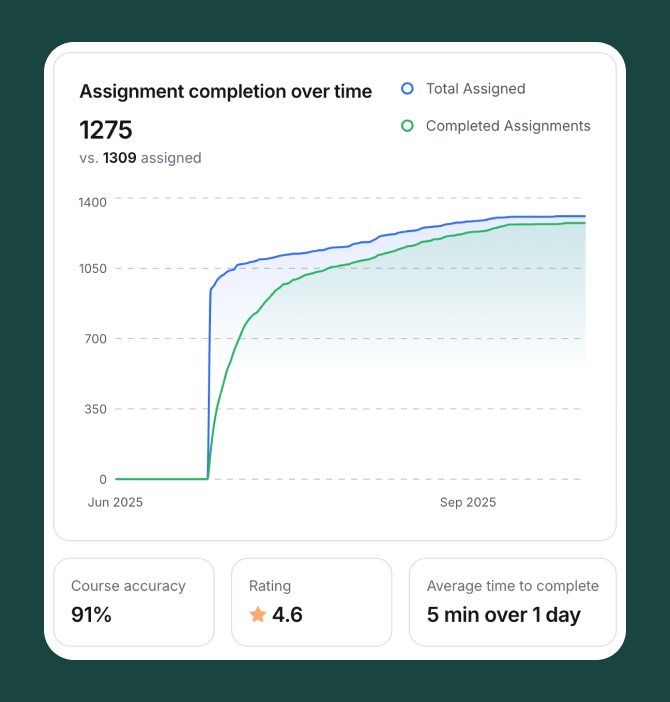
Why Opus Enabled Speed
✅ Rapid content creation: Native builder and AI tools saved time
✅ Real-time updates: enabled flexibility for last minute decision changes
✅ Multilingual automatically: No delays for translations
✅ Mobile-first: Field trainers referenced materials on phones—no printing packets
✅ Pre-learning flexibility: Asynchronous completion prevented calendar bottlenecks
🌎 Fun fact: 9% of Smashburger's users trains across 10 different languages
Maintaining Knowledge Over Time
The Summer of Smash success wasn't just about the initial rollout. Smashburger needed to ensure menu knowledge stayed fresh as items transitioned to permanent offerings.
The Long Game: Speed Through Preparation
Kelly's 60-day rollout succeeded because of years spent building operator relationships, understanding pain points, and establishing credibility with her team.
Guest feedback results on the Summer of Smash LTO received minimal complaints about execution. In an industry where new menu rollouts spike negative feedback, Smashburger delivered to operational standards.
Since menu items transitioned to permanent offerings, the training investment served business operations long-term.
Looking Ahead
With Opus as their operational foundation, Smashburger can execute their franchise expansion strategy with confidence. The platform scales to airports, universities, and naval bases while maintaining the training standards that protect brand consistency.
Engaged managers drive adoption. Technology alone won't work—managers who actively point teams to the platform create exponential engagement growth.
💡 Ready to implement training across your franchise system?
Download the Franchise Training Implementation Guide for a complete phase-by-phase playbook based on successful rollouts at Smashburger, Bonchon, Bahama Buck's, and more.
Listen to Kelly's full Back to Basics episode → Get the complete story on replacing three LMS platforms, navigating franchise dynamics, and building operator buy-in.


